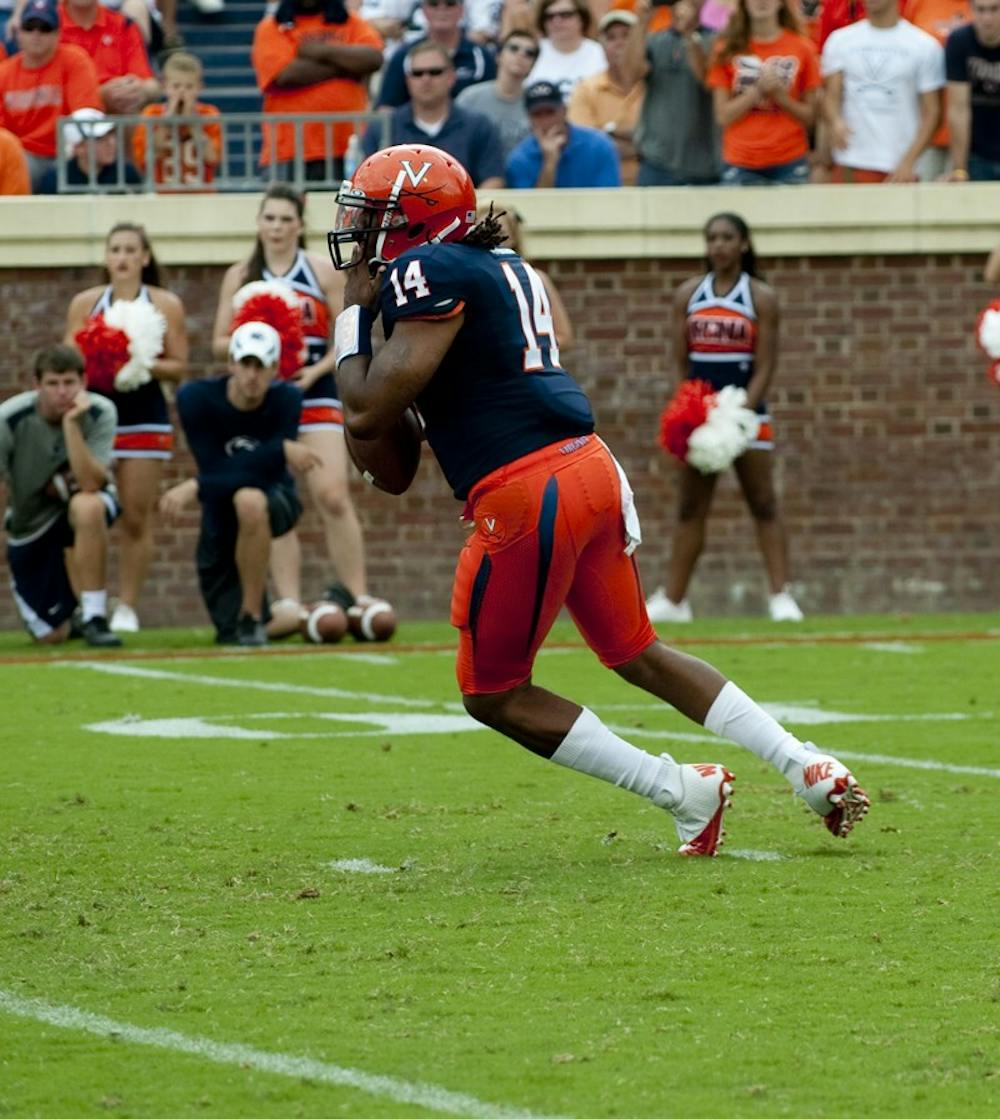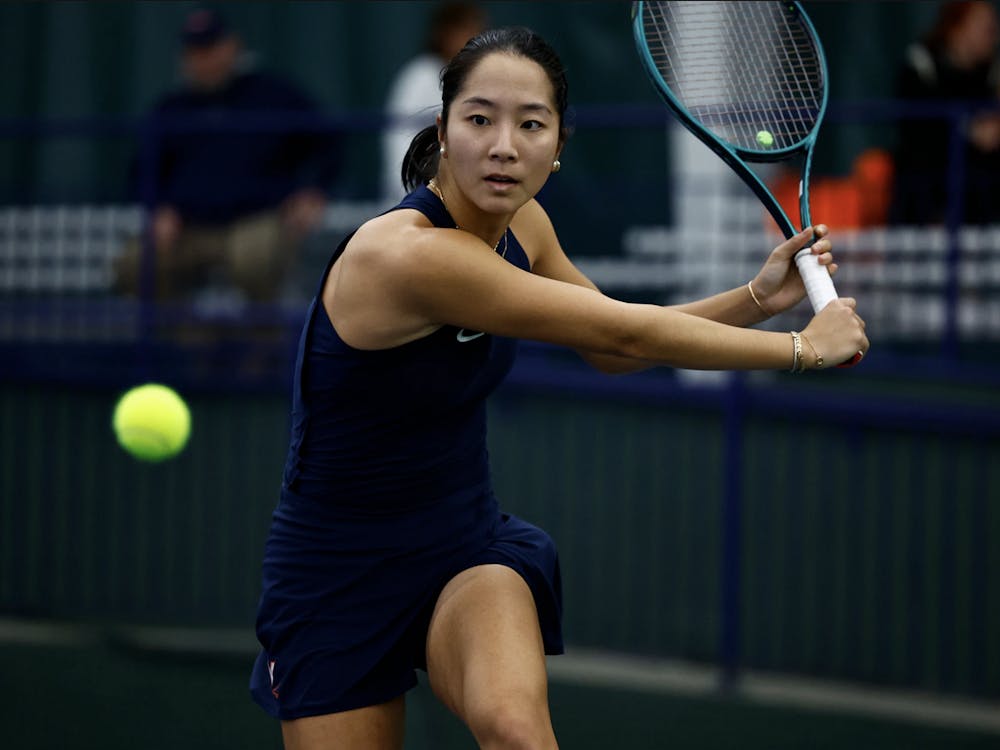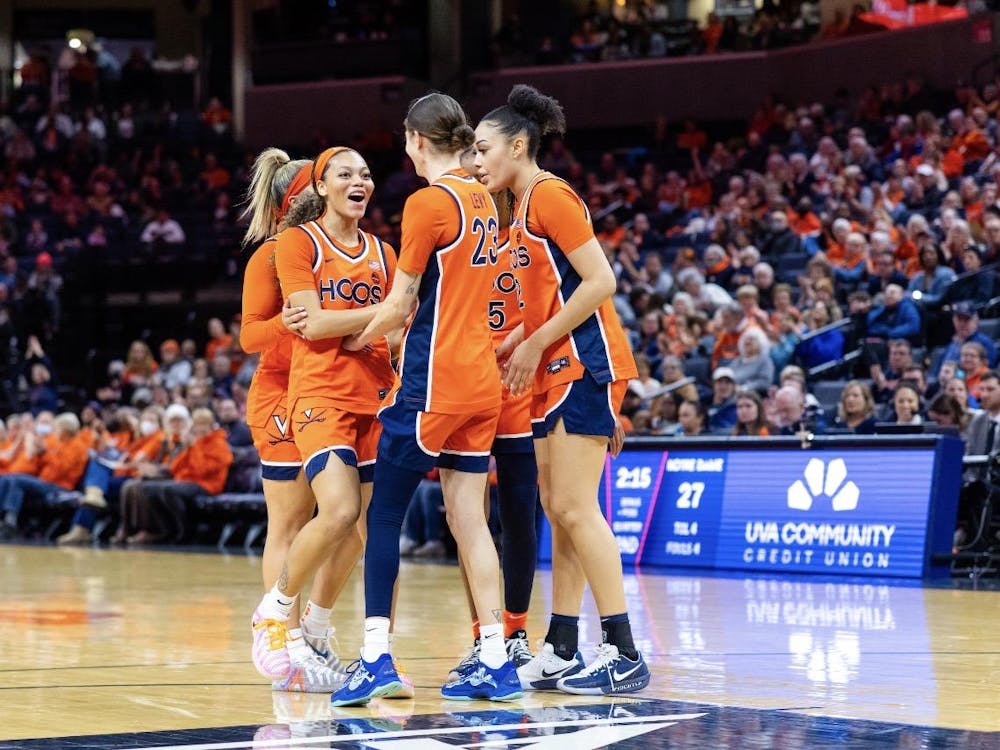Claiming it ended with a whimper hardly suffices. Rather, it would be more appropriate to describe the Phillip Sims Era at Virginia as concluding with an errant, wobbly pass, landing yards away from its intended target.
Billed as an elite quarterback, a program savior, and the best import to Virginia from a Southern school since William Faulkner, Sims arrived in Charlottesville last spring amid a wave of euphoric anticipation. After all, Sims held Virginia high school state records in passing yards and touchdown passes when he left Oscar Smith High School as the nation’s top-rated quarterback and just couldn’t quite make it at Alabama; and, as the unspoken but palpable implication went, a quarterback who barely misses at the best program at the country could work miracles at Virginia. Besides, with his name, I at least envisioned him overexplaining the finer points of the game on CBS with Jim Nantz in 2035.
This past Friday, the glorious Sims experiment ended quite ungloriously when the school deemed him academically ineligible and declared that he would no longer be enrolled after he completes the current summer session. After a year of mediocrity and a slew of comments during the spring that indicated a fractured psyche, he even prompted London to shoot an uncharacteristically vicious barb at Sims for his lack of “commitment he needed to succeed here.” Most tellingly, his abdication should have little to no effect on Virginia’s prospects for 2013. In fact, the departure of Sims might actually provide stability to the Cavaliers, provided either redshirt sophomore David Watford or redshirt freshman Grayson Lambert—both of whom have outclassed Sims on and off the field this offseason—pulls ahead and helps London avoid the migraine-inducing quarterback carousel that derailed the 2012 season. Flummoxed fans are now asking how, in the span of a year, Sims morphed from messianic free agent to derided dropout.
Usually in such instances, fans and select sanctimonious writers would like to climb on their high horses and blast Sims for being a punk, a spoiled brat, a moron, another manifestation of our crumbling generation—harsh and irresponsible language to bandy about for a group of people who know neither the Sims nor the situation surrounding his academic struggles. While it is critical to understand that while most of the blame falls squarely on Sims’ shoulders, the entire debacle should serve as a cautionary tale for London’s staff and fans about the inherent danger in hoping that such a transfer can trigger a quick, substantial fix for a college program.
The best and worst thing you could say about Sims’ performance last season was that he was the Ryan Reynolds of quarterbacks; he wasn’t horrendous and produced a highlight or two, but eventually we all realized there just isn’t much there. When I first heard that Sims had apparently failed a class, my first thought was that former offensive coordinator Bill Lazor must have taught it. Whether from lack of effort, a lack of cerebral capacity or mere failure to communicate, Sims learned so little of Lazor’s elaborate pro-style playbook throughout last season that the offense could never rely on him for lengthy stretches due to the simplistic, predictable plays he had to run. Additionally, as Tobias Funkё might errantly say, he held balls for far too long; you could have read several sonnets in the amount of time Sims dawdled with the ball during some plays, which explains how he was sacked five more times in 58 less pass dropbacks than Rocco. London and Lazor certainly deserve some blame for playing quarterback roulette all last season, but ultimately London hit the nail on the head. Sims worked pretty hard, and committed somewhat to the program, but he ultimately lacked the willingness to sacrifice and the innate knack for the game that separates great from good and good from incompetent in top-flight college football. His academic failure only reinforces the point: in a similar situation, a strong quarterback and leader would have stopped at nothing to pass that class.
But the knowledge that Sims probably never quite had “it” in the first place only begs another question: why did so many of us automatically endorse the Sims as evolutionary Matt Schaub given the inherent risk of transfers altogether and how considerably the move deviated from London’s recruiting strategy? Thanks in part to his gregarious, enthusiastic recruiting style and in part to a mysterious but strong relationship to the Illuminati of Virginia Beach football, the “Thoroughbreds” 7-on-7 program, London and his staff have made tremendous strides toward establishing a mostly home-grown, uber-talented core of players who fit his preferred style while hampering Virginia Tech’s chokehold on in-state talent at the same time.
Sims, clearly, was far from the ideal quarterback to run Lazor’s schemes, an immobile downfield passer whose skills hardly meshed with Lazor’s West Coast attack. Virginia would have had to recalibrate its offense to cater to Sims skills a la Auburn’s strategy with Cam Newton, and Sims is no Cam Newton. From Saban to Chip Kelly before leaving Oregon, the most successful coaches in recent history have built hyper-talented rosters with compatible parts through meticulous scouting and recruiting, not grasping at any talent they could acquire. Sims was a windfall that fell out of a sky, like a lavish 80 inch TV London felt compelled to accept even though he had no room for it.
So while it’s tempting to lambast Sims’ character and leave it at that, I think such narrow interpretations miss the point. Seduced by his pedigree, the Cavaliers and their supporters regarded Sims’ ascension to the starting job as an overwhelming likelihood when it was always, always going to be a long shot. The enduring lesson here, especially for fans, is that quick fixes, especially through the transfer mechanism, and especially at the always tenuous quarterback position, seldom if ever occur in college football. You can’t build a college program like Pat Riley built the Miami Heat. Rather, constructing a strong roster mandates sticking to a coherent plan for acquiring and exploiting talent—a recipe I expect London to adhere to more closely in the wake of the Sims experiment.







